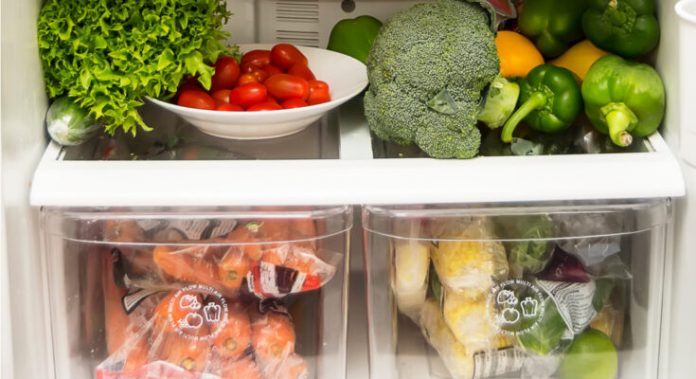Did you know that every year food wasted is approximately 300kgs per person?
This is alarming, even though one may argue that it is wet waste, biodegradable and contributes much less to climate change.
Lets not look for excuses for our irresponsible behaviour.
Recently, I went on a weekend monsoon picnic to Lonavala, each of us carried along a few snacks, in the enthusiasm everyone jotted down their home specialties and the snack list finally amounted to more that we would be able to eat, me being me, I made a request on the group chat for everyone to get reduced portions to avoid wastage. One of the girls, (giving her the allowance of being the youngest in the group) popped a message
“Nobody is looking for a moral science lesson, we are done with it.”
It did make my blood boil, but I would not have been true to myself, if I did not make the request.
At the end of the picnic, there were umpteen amounts of leftovers, but because of my request, everyone grabbed bits of leftovers to take home, as the eagle’s eye watched over.
Moral of the story: Do your bit to save food, money and the environment, even if a couple of brickbats fly your way.
Its no secret that shopping for groceries week on week for the major part of your adult life can be a chore that turns into a bore, often making us shop for more than needed to avoid an extra trip to the supermarket, only to realize that by the end of the week your vegetable tray has a couple of rotten or shriveled up vegetables ready for departure in to your bin. (wet garbage I presume)
To put this into perspective, you are throwing out the equivalent of one in every five bags of groceries you purchase.
Now that’s a lot of wastage for the environment and your bank balance.
Make the switch, with these scientific tips to help reduce grocery wastage and fill your pockets as a double whammy.
What’s in my weekly grocery basket?
ONION, POTATO, GARLIC:
The secret to keeping them crisp and fresh is to allow them to breath, store in a cool dry spot, a mesh basket is ideal, no sealed ziplock or plastic wrap.
TOMATO:
Raw tomatoes should be stored in one layer, stem side down on a paper towel, once ripe transfer to the fridge in a separate container.
GINGER:
Peel and Slice the ginger and freeze in a reusable ziplock bag, believe it or not, it lasts for three months.
LEMON: always refrigerate in a reusable ziplock bag to prevent drying.
MUSHROOM:
Mushrooms are fungi, they need to be cool and well ventilated, storing them in paper bags versus plastic is a must, or still better, stir-fry them as soon as you get home and store in a container ready to add to any dish.
CARROT:
Cut off the heads to make them last longer in the fridge, save the leafy green sprouts to make Vegetable stock, or Pesto sauce or Chimichurri.
LEAFY GREENS:
Spinach, Kale, Lettuce, Salad leaves, Methi, Bak Choy, Amaranth Leaves.
Wash them in cool water, gentle dry on a kitchen towel or a salad spinner and store them in sealed reusable containers/ zip lock bags in the fridge.
TIP: all the stalks can be collected and made into a flavoursome vegetable stock.
HERBS
Fresh Coriander, Fresh Mint Leaves, Fresh Curry Leaves, Fresh Parsley, Fresh Basil, Fresh Rosemary, Fresh Oregano.
Keep your herbs like flowers, trim the ends and keep them upright in small jars of water. Soft stem herbs like basil can be kept at room temperature away from heat. They will be happy and perky for longer.
FRUIT:
TIP: You may have noticed a waxy covering on your produce, this waxy covering is sprayed on to help prevent bruising and rotting. Do not wash off this covering, until you are ready to cook or eat the fruit or vegetable.
Banana, a tropical fruit, ripens quickly with heat, once ripe you can refrigerate to slow down further ripening, keeping them from getting to the mushy state.
TIP: Most softer fruits and vegetables spoil more rapidly because of surface moulds and fungi. These organisms get into the core of the fruit and vegetables from spores in the air and once they settle in and on the produce they begin to devour the same nutrients for which we buy the produce for ourselves. This means the longer we store produce with their free-loading occupants, the less the nutritional value we get. That is why it is important to wash your raw produce with Potassium Permanganate solution (age old value for money recipe) or ready made organic solutions available online or in your supermarket; Veg wash by PURECULT or BIO- STERILIZER. Wash your produce in the solution as soon as you get home and then refrigerate. The results are amazing;
Berries– Cherries, Blueberries, Raspberries, can last two to eight weeks longer.
Stone Fruit-Apple, Pears, Nectarines, Plums get about the same.
Salad greens (conveniently sprayed rather than dipped) can last months
Zucchini and Squash have made it a record four months.
STORAGE:
Loading your crisper drawer (vegetable storage drawer in your fridge) correctly is vital for longevity of your produce.
Do you know that ethylene gas produced by some fruit and vegetables speed up their ripening process- Apple, Cantaloupe, Pear, Avocado, Banana, Tomato, to name a few common ones. If you leave these ethylene gas producing produce alongside fruits and vegetables that are sensitive to Ethylene, the sensitive produce will rot faster than you know it, these include; Mango, Peach, Onion, Cucumber, Asparagus, Grapes, Eggplant.
Remember to load your drawer correctly, separating the gas producing and sensitive produce.
No more tossing bundles of veggies, fruit, herbs in your crisper drawer.
Save your pocket and the environment.
Enjoy the double whammy.








